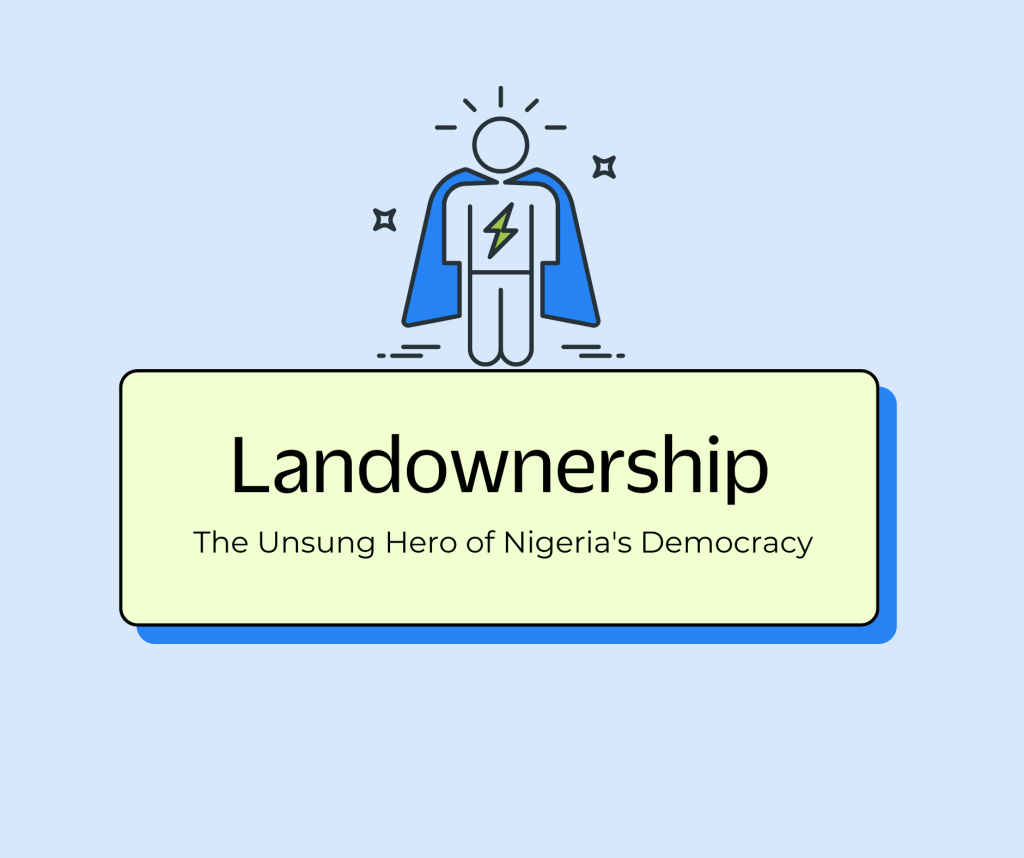Land Ownership: The Unsung Hero of Nigeria’s Democracy.

As Nigeria celebrates Democracy Day on June 12th, it’s important to recognize the unsung heroes of the struggle for a just and equitable society – land rights. For generations, secure land ownership has been a cornerstone of Nigerian aspirations for democracy, and its impact extends far beyond simply owning a piece of earth.
Historical Significance:
- Colonial Legacy: Colonial rule in Nigeria often dispossessed indigenous communities of their land rights, leading to resentment and fueling the fight for self-determination. The struggle for land rights became intertwined with the fight for democracy.
- Post-Independence Challenges: Land ownership issues remained a major obstacle after independence. Unequal access to land and lack of transparency in land management created social unrest and hindered economic development.
- Democratization and Land Reform: Efforts to establish a fairer land system became a key part of the democratization process. Land reforms aimed to ensure equitable access, particularly for marginalized communities.
Land Rights and a Thriving Democracy:
- Economic Development: Secure landownership provides a foundation for economic growth. It allows individuals and communities to invest in their land, build businesses, and create wealth. This fosters a more robust and inclusive economy, a vital aspect of a healthy democracy.
- Social Stability: Land disputes are a major source of social unrest. Secure land rights reduce conflicts and promote a sense of security and stability within communities. This creates a more peaceful environment conducive to democratic processes.
- Citizen Empowerment: Owning land empowers citizens. It allows them to participate fully in the economy, build a secure future for their families, and have a greater stake in society. This fosters a sense of ownership and civic engagement, crucial for a functioning democracy.
Sytemap: A Tool for a More Democratic Land System
Sytemap tackles the challenges of land ownership in the digital age. Here’s how it promotes a more democratic land system:
- Transparency: Sytemap utilizes Satellite Imagery & blockchain technology to create a secure and transparent way to reserve lands. This reduces corruption, fraud, and ambiguity related to land ownership.
- Accessibility: By digitizing land records and making them accessible online, Sytemap empowers individuals to access information about the land easily. This promotes citizen participation and reduces dependence on bureaucratic processes.
- Efficiency: The platform streamlines land transaction processes, saving time and resources for Real Estate Developers, Agents and potential buyers. This reduces barriers to entry and fosters a more dynamic land market.
By promoting transparency, accessibility, and efficiency, Sytemap contributes to a more democratic land system in Nigeria. This empowers citizens, fosters economic development, and contributes to a more stable and just society – all essential aspects of a thriving democracy.
Celebrating Democracy Day with a Focus on Land Rights
This Democracy Day, let’s celebrate the progress made in securing land rights for all Nigerians. Sytemap stands as a testament to Nigerian innovation and its potential to create a more equitable and democratic land system. By recognizing the historical significance of land rights and their continued importance, we can build a stronger and more prosperous future for Nigeria.
